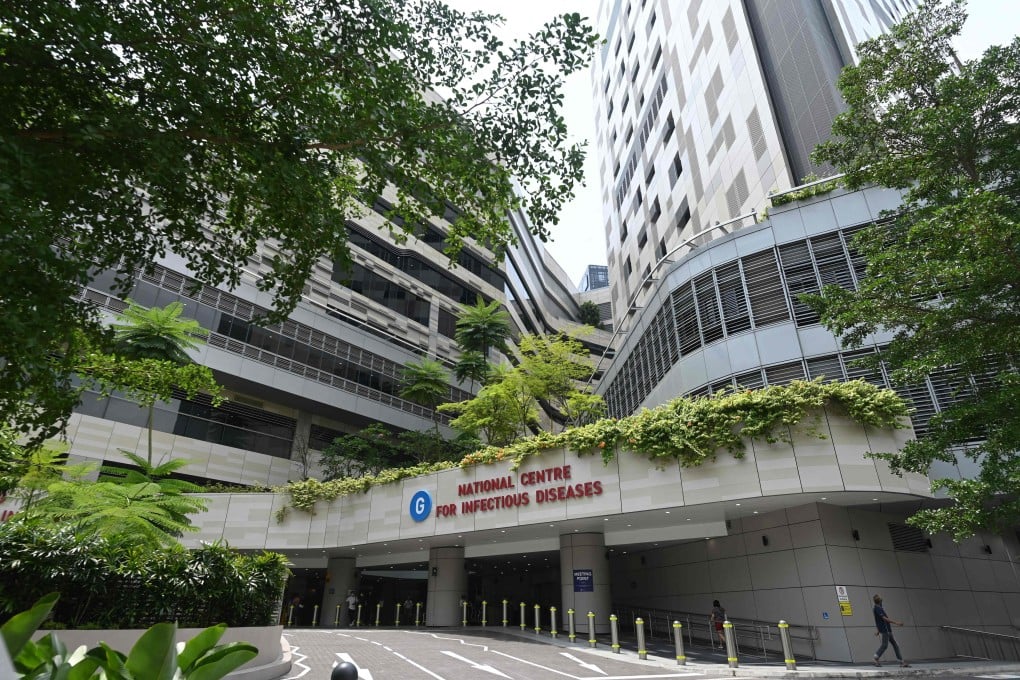Coronavirus: Singapore defers non-urgent surgeries after first Covid-19 death in weeks; Philippine’s Duterte gets Chinese vaccine
- The 88-year-old Singaporean woman died on Saturday after being treated at the hospital at the centre of a virus cluster
- Elsewhere, Nepal is suspending all flights, and Pakistan warned its virus fight has entered a ‘critical’ phase

The capacity measures – which also include limiting accident and emergency visits only for life-threatening or other emergency conditions, and encouraging remote consultations instead of in-person medical visits where possible – come amid a flare-up of cases in a country that has been one of the world’s most successful in containing the virus.

01:40
Travel bubble: Hong Kong and Singapore to launch quarantine-free entry after long delay
“There will be many more” cases in the hospital as patients there are more susceptible given many hadn’t been vaccinated and were already sick with other illnesses, said Leong Hoe Nam, an infectious disease doctor at Singapore’s Mount Elizabeth Hospital. “Unfortunately, they are easy targets for a Covid-19 superspreader, and in turn patients who have been infected can be new superspreaders,” he said, adding that he has no doubt the government will contain the cluster.
Singapore has largely halted the spread of the virus, but virtual elimination is being challenged by sporadic flare-ups. In a bid to stay at zero local cases, the government – much like those in New Zealand, Australia, Hong Kong and China – reacts aggressively to small numbers of infections.